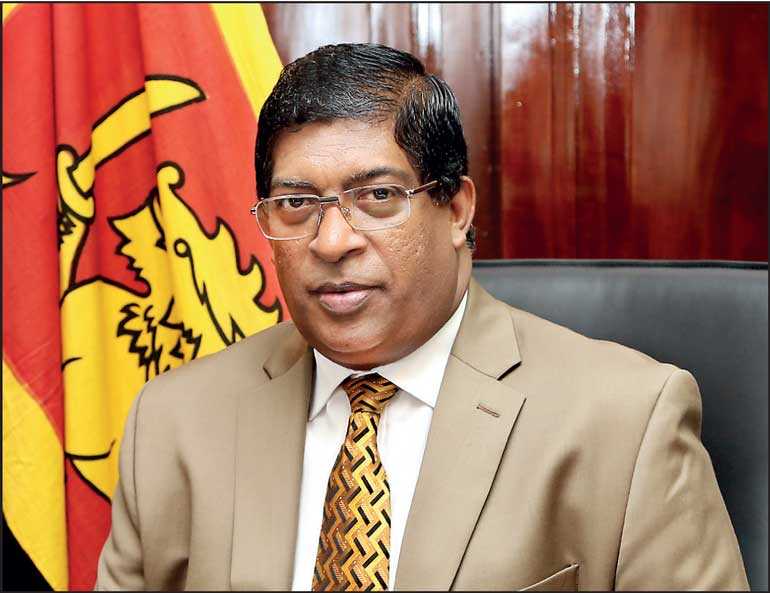Tuesday Feb 17, 2026
Tuesday Feb 17, 2026
Friday, 12 July 2019 00:00 - - {{hitsCtrl.values.hits}}

By Ashwin Hemmathagama
– Our Lobby Correspondent
Power, Energy and Business Development Minister Ravi Karunanayake yesterday told Parliament that he plans to appoint a new Commission to revise electricity rates.
Karunanayake, who had earlier submitted a Cabinet paper to trim the powers of the Public Utilities Commission of Sri Lanka (PUCSL), which has to approve any increase of power prices, said that generating costs were uneven, and even though PUCSL had recommended new tariffs, some of them were not feasible. He said a new Commission will be appointed to revise the rates.
The Minister also confirmed the Government has no plans to privatise the Ceylon Electricity Board (CEB) despite loss-making, but to further improve the service provided at an affordable charge.
Currently, the CEB supplies electricity to several different customer categories, where each category has a different rate adopted to recovers the cost. As a result, some of the subsidised electricity prices have led the Government to depend on the Treasury to cover the losses. “The CEB incurred a loss of Rs. 60,429 million in 2018. Due to the drought in the last two years, the rainfall was reduced. The hydropower generation reduced by 21% and 33% in 2017 and 2018 respectively. As a result, thermal power was used to generate electricity and this increased the cost. In 2018, the average generation cost per unit stood at Rs. 19.12 and the CEB average income received selling a unit was reported Rs. 16.29. The renewable energy has helped to reduce the generating cost,” he said.
According to the Minister, the tariffs are prepared to meet Government policies, but should be updated. “The Public Utilities Commission has recommended new tariffs. But some are unfair charges. We plan to appoint a new Commission and revise the rates,” he said.
Promoting renewable energy as a stable and long-term solution for Sri Lanka, Minister Karunanayake held that generations made from the solar panels are added to the national grid. “There is a misconception about solar power, that as soon as you put the panels out it starts generating electricity. But the solar electricity added to the national grid helps to meet the fluctuating demand for electricity. There are 6.5 million houses in the country. We are looking at reducing the generating cost to the Rs. 15-Rs. 16 range,” held the Minister, promising to pass the benefit to the consumers.
During the last three years, the Government has provided electricity connections to 215,000 families who were unable to obtain an electricity supply. “Some of these people didn’t have the money to wire their houses. So, we gave them a loan of Rs. 40,000 at 7%, to be recovered over 72 equated instalments,” he added.
Minister Karunanayake, responding to a supplementary question raised by Opposition lawmaker Dayasiri Jayasekara, held that there is an issue between two associations which led to a misconception on net metering. “We have no plans to stop any of the solar-related tariff systems. We will introduce a common system for net metering and net accounting. My task is to bring it down from Rs. 45 to Rs. 25 for the consumer, and also reduce the generating cost from Rs. 23 to Rs. 15,” he added.